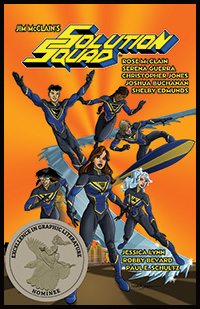As the sixth grade school year drew to a close, my dad asked me if I wanted to play Little League baseball. I don’t think “excitement” is the right word to describe how I felt about that. I had always loved baseball far more than any other sport. I played it in any form at recess in every school I had ever attended. Playing “pickle,” “500,” or playing a full game, I would do it all. I had never had the opportunity to play organized baseball outside of one instance in third grade, where there wasn’t so much as a practice before we were thrown into a huge city tournament, I guess to gauge enthusiasm for that age. But now, I was going to get to play on a team, with actual uniforms, and best of all, my dad was going to be the assistant coach.
As it turned out, I was one of the stars of the team. The head coach, Sherman Holmes, put me at first base, because I was the tallest one on the team, and I could reach higher and farther than anyone else. I loved playing first base, because I got to be involved in every play where a ball was hit on the ground. My favorite player when I was younger was Bill Freehan, the catcher for the Detroit Tigers, but I had no experience as a catcher with the gear and fast pitches, so I gladly made the switch. On my team was virtually every boy from my sixth grade class. We were the only team from Tustin, and we played other teams from around the area, like Leroy and Luther, two other smaller towns that would eventually feed into the Pine River Area School District. But for now, we were just Tustin.
We won most of our games, lost a few, but I can’t describe how good it felt to finally be part of a team, and to be accepted. There was a point, one day before a game, when I was hanging out with one of my teammates, riding bikes around town, and he did something so unexpected, my jaw probably dropped; he lit up a cigarette. I still remember what he said to me: “Don’t tell your dad.” I swore secrecy, and never told a single person until now, as I write this. He offered me a cigarette, but I hated them. I hated the smell. Both my dad and his wife smoked, and both of my stepsisters smoked, and I hated that, too. This boy was up to serious mischief, too, as he also showed me that he had a whole paper sack full of snap n’ pops. By any other name, they were little wads of paper with a tiny bit of gunpowder that would make a satisfying crack sound when you threw them on the ground.

When we got to Little League practice that day, he put a whole bunch of them in the front pocket of his blue jeans. And it went probably just how you’re imagining it. As our shortstop, he mishandled a ground ball, and it hit him right in the front pocket. A really loud crack sounded from the impact, and he doubled over in pain. They had practically all exploded on impact, staining his pants dark with smoke. He wasn’t seriously hurt, but the entire team lost it right there on the field. He had bragged about his contraband, and we immediately knew what it was. That poor guy is probably still traumatized about it to this day.
Meanwhile, my run on Justice League of America continued with issue #145.

The most memorable thing about this comic book for me was that it was the one that taught me about the impermanence of death in comic books. This Count Crystal guy successfully murdered several members of the Justice League, including Superman. I mean, literally, the narration includes the phrase, “Superman’s ghost.” And by the end of the issue, the Phantom Stranger brings them all back to life, so no harm, no foul, I guess.
But there were mixed signals with another comic that came out that month, Showcase #94.

This comic book described the deaths of the original Doom Patrol. I knew who they were from various reprints, but had never read of their collective demise until now. While The Chief, Negative Man and Elasti-Girl were still dead, Robotman was resurrected to form a new Doom Patrol, which I thought was very interesting. So maybe not all comic book deaths were the same, after all?
As the school year came to a close, I said goodbye to my non-baseball-playing friends as well as Mr. Hunter, and looked forward to seeing them in junior high the next year. Unbeknownst to me, that was not to be.


